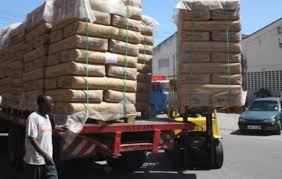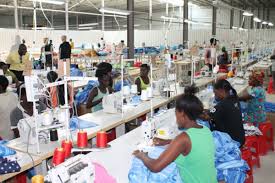The usually bustling Busia border crossing between Kenya and Uganda fell eerily silent on Wednesday, as news of the death of Kenya’s former Prime Minister and veteran opposition leader, Raila Amolo Odinga, sent shockwaves across the region.
For decades, Raila Odinga — fondly known simply as Baba — was a towering figure in East African politics, revered for his resilience and relentless pursuit of democracy.
His passing at age 80, following a cardiac arrest in the coastal city of Kochi, India, has left both nations in mourning and momentarily paralyzed one of East Africa’s busiest trade corridors.
By dawn, hundreds of trucks ferrying goods between Kenya and Uganda were parked bumper to bumper, their engines off. Clearing agents, drivers, and customs officers abandoned work to follow the unfolding news. In the nearby town, shops remained shuttered, while the Kenyan flag flew at half-mast in solidarity.
“We could not focus on work after hearing the news. Baba was not just a politician — he was a symbol of hope,” said John Musungu, a Kenyan truck driver waiting at the border yard.
Across the divide, Ugandan traders mirrored the same grief. Businesswoman Sarah Nabwire from Tororo, Uganda, said her clearing business halted completely:
“Odinga’s politics influenced not only Kenya but also the entire region. We grew up hearing about his courage.”
The Busia border, handling an estimated 1,200 trucks daily, serves as a lifeline for regional trade linking the Port of Mombasa to Kampala, Kigali, and beyond.
Customs data indicate that the 12-hour closure that followed Odinga’s death led to losses estimated at over KSh 100 million in delayed goods and logistics costs.
Transport economist Dr. Mercy Nyongesa described the impact as both symbolic and economic:
“When someone like Raila Odinga dies, it transcends politics. It affects sentiment, identity, and even trade — because he represented stability and continuity in the struggle for reform.”
In Nairobi, President William Ruto declared a seven-day period of national mourning, describing Odinga as “a patriot whose sacrifices deepened Kenya’s democratic roots.”
Across the continent, leaders including Yoweri Museveni of Uganda and Samia Suluhu Hassan of Tanzania paid tribute, calling him “a statesman who believed in the unity of Africa.”
Messages of condolence also poured in from the African Union, the United Nations, and former U.S. President Barack Obama, whose father hailed from the same Luo community as Odinga.
Odinga’s political journey — from imprisonment in the 1980s, to his role in Kenya’s transition to multi-party democracy, to five attempts at the presidency — shaped the political discourse of East Africa.
To his supporters, he was “the president Kenya never had,” a man whose voice defined opposition and whose handshake with former rival Uhuru Kenyatta in 2018 ushered in a fragile peace.
At the Busia border, as dusk fell and drivers lit candles by their trucks, one could sense that this was more than a death; it was the pause of a nation in reflection.
“Trade will resume,” said truck driver Musungu, “but it will never feel the same again.”



